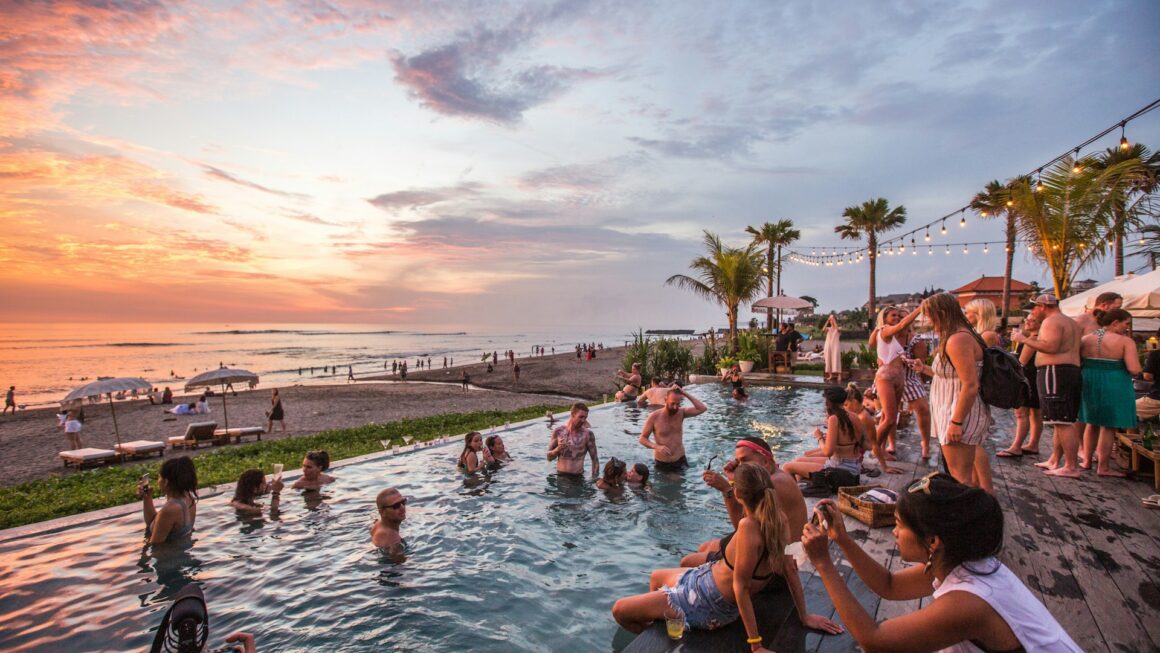Bali Tourism Evolution: Policing and Tattoo Culture
Bali is often thought of as a heavenly retreat, but its laid-back vibe is shifting. In response to disorderly tourists, Bali introduced a specialized tourism police unit in February.
This team has addressed numerous problems, including inebriated tourists and individuals turning to begging for money.
"Unfortunately, some visitors have depleted their funds and resorted to begging. We've seen such cases," stated Dewa Nyoman Rai Dharmadi, head of Bali's Civil Service Police Unit. "Disturbances at tourist spots are not uncommon, and our main objective is to keep the atmosphere friendly for everyone."
Over 70 officers have been stationed in key locales like Canggu, Seminyak, and Kuta. These officers also oversee proper dress codes at Hindu temples, promoting the wearing of traditional sashes in Bali, a region noted for its unique Hindu heritage. Dharmadi added, "Visitors often unintentionally violate sacred customs out of ignorance."
Despite these regulatory measures, some dissatisfaction persists. Last May, the former Governor Wayan Koster suggested capping visitor numbers to tackle disruptive tourist behavior, though this proposal wasn't enacted. Bali still faces difficulties as Indonesia’s foremost travel destination.
Supporting the tourism police are "tourist companion dogs." In the last year, Bali expelled 340 foreigners for a variety of violations, marking a sharp increase from the previous year. Violations have included overstaying visas and misbehaving at sacred sites.
Recent incidents, such as the arrest of tourists from the U.S. and Bermuda after a viral incident in a salon, and the detention of three Mexicans linked to a theft, continue to underscore the ongoing issues.
Visitor numbers are rapidly recovering. After seeing only 51 international visitors in 2021, compared to 6.3 million in 2019, last year’s figures nearly reached 5.3 million, exceeding the 4.5 million target. This year, Indonesia’s Minister of Tourism and Creative Economy, Sandiaga Uno, has set a goal of seven million visitors, as mentioned by Bali’s tourism chief Tjok Bagus Pemayun.
Alongside this tourism revival, another sector gaining traction is the tattoo industry, spurred by Bali’s artistic vibe and cultural richness. Tattoo studios in Bali have become hotspots for tourists wanting to memorialize their visits with permanent artwork.
Bali’s tattoo artists are celebrated for their innovative blend of traditional Balinese motifs and contemporary techniques, transforming the island into a center for tattoo tourism. Tattoo parlors are spread throughout major tourist areas like Kuta, Seminyak, and Ubud, offering a wide array of styles and maintaining strict health and safety standards.
The growing number of visitors has also led to tighter regulations in the tattoo sector. The local authorities ensure that studios are licensed and meet health standards to safeguard Bali’s status as a secure tattooing destination. This oversight is essential, as the influx of tourists raises the stakes for local services to uphold top-notch standards.
Furthermore, the expanding tattoo scene in Bali mirrors a broader trend in global travel, where tourists seek more immersive and individualized experiences. A tattoo from Bali is often considered not just a memento but a meaningful connection to the island’s vibrant cultural fabric.


Comments
Post a Comment